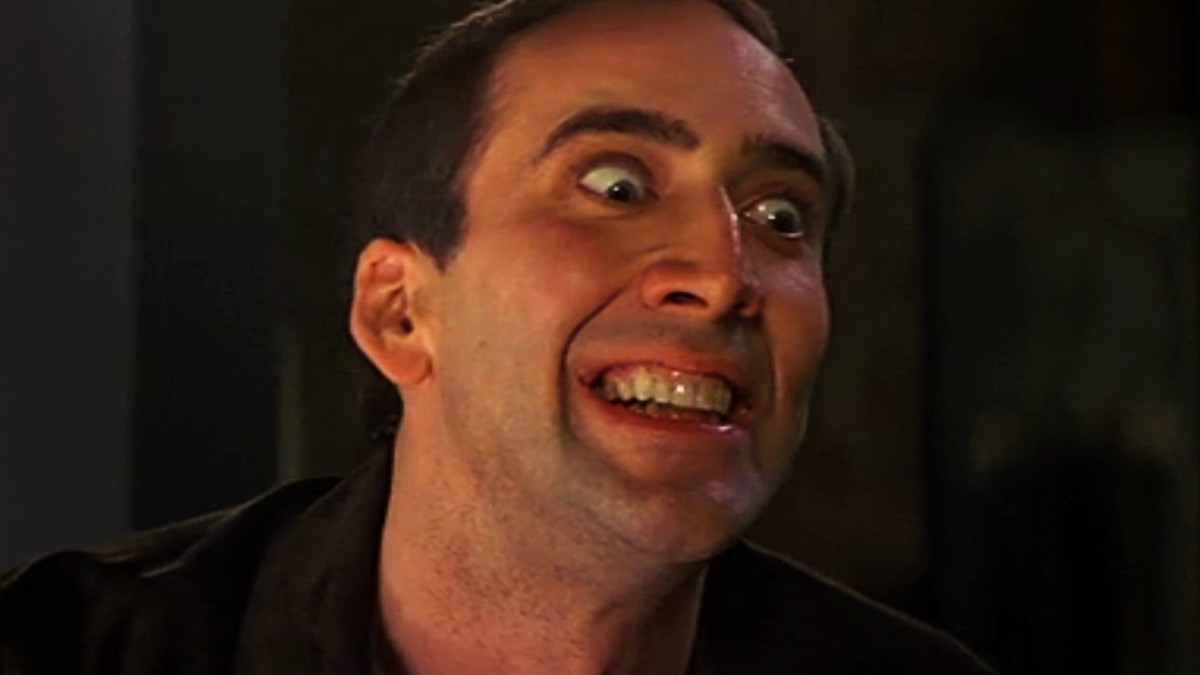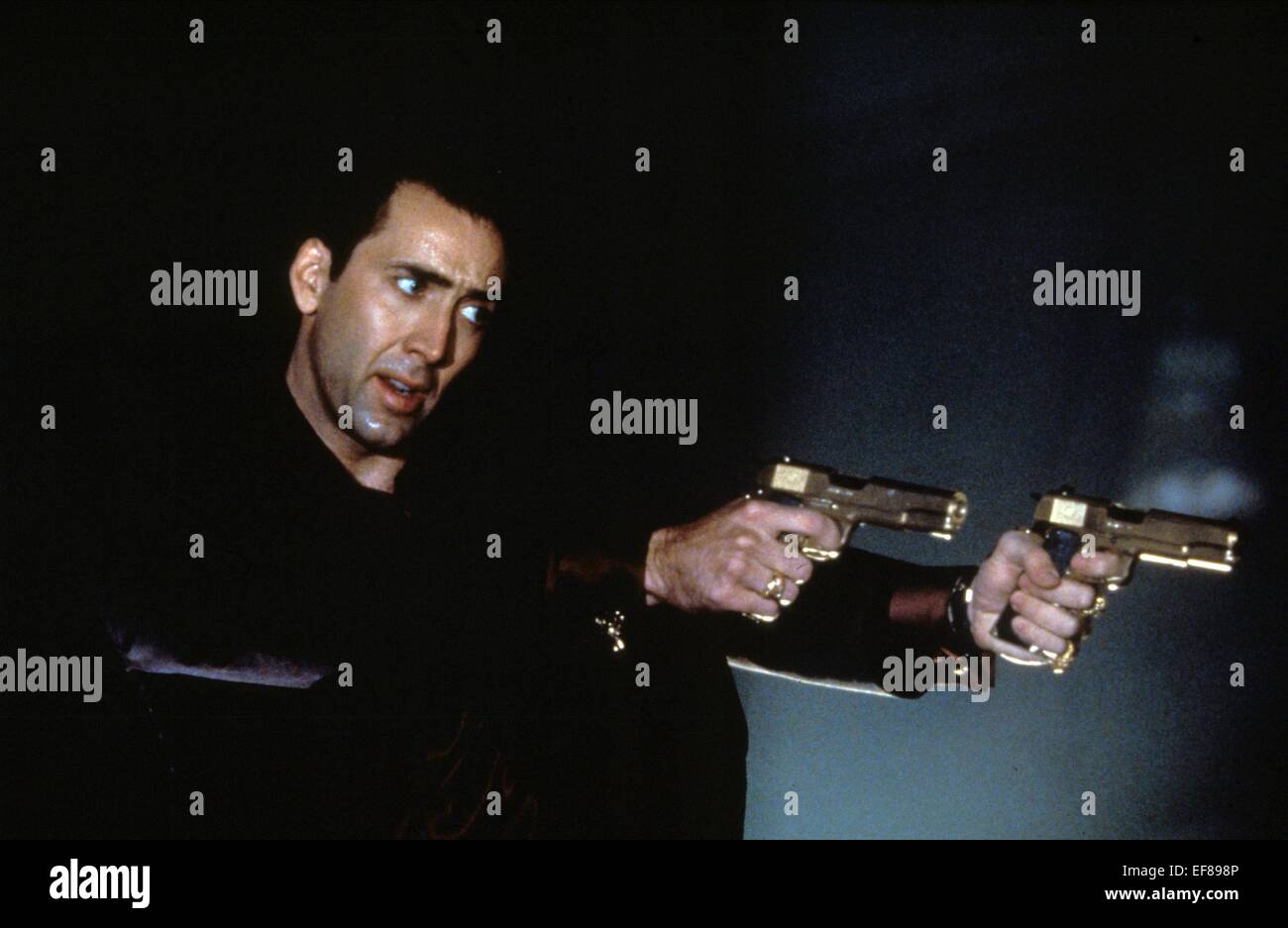Can a man truly become his enemy? In John Woo's 1997 masterpiece, "Face/Off," the lines between hero and villain blur in a way that redefines the action thriller genre, offering a compelling narrative of identity, revenge, and the ultimate sacrifice.
The genesis of "Face/Off" lies in the heart of 1990s Hollywood, a period where action cinema was undergoing a renaissance. Hong Kong director John Woo, known for his innovative and stylized approach to action, brought a fresh perspective to American filmmaking. The film, a tale of two sworn enemies FBI agent Sean Archer and the ruthless terrorist Castor Troy is a complex exploration of morality and the psychological impact of assuming another person's identity. The narrative, penned by a team of talented writers, explores the lengths to which individuals will go to achieve justice, or to exact revenge.
The film's central conceit, a daring and highly experimental face transplant, allows Archer to assume Troy's identity in an attempt to thwart a terrorist plot. However, the plot thickens when Troy, miraculously surviving the procedure, takes on Archer's face, setting the stage for a dramatic and unpredictable showdown. Released in 1997, "Face/Off" quickly captivated audiences and critics alike with its unique premise, breathtaking action sequences, and compelling performances. The film's success was a testament to the synergy between Woo's directorial vision and the star power of its leading actors.
The films exploration of duality is a significant part of its thematic depth. The story does not simply pit good against evil, but rather, it delves into the moral ambiguities inherent in both Archer and Troy. As they inhabit each others lives, they are forced to confront the consequences of their actions. The film challenges viewers to ponder the question of what truly constitutes identity: is it the physical form, or is it the essence of the person within?
The film's impact extends beyond its immediate success. "Face/Off" influenced countless action films and provided a framework for narrative complexity within the genre. It is a film that continues to resonate with audiences. The film's innovative action choreography, combined with its thought-provoking themes, solidifies its place as a timeless classic. The film's enduring appeal can be attributed to its exploration of universal themes, like identity, revenge, and the complexities of good and evil. The film's blend of thrilling action, dramatic depth, and strong performances has ensured its legacy as a cornerstone of modern cinema.
| Category | Information |
|---|---|
| Full Name | Sean Archer / Castor Troy (Portrayed by John Travolta and Nicolas Cage) |
| Occupation | FBI Special Agent / Terrorist |
| Actor | John Travolta / Nicolas Cage |
| Director | John Woo |
| Release Date | June 27, 1997 |
| Budget | $80 million |
| Box Office Gross | $245.7 million |
| Plot Summary | An FBI agent and a criminal exchange faces in a surgical procedure. |
| Key Themes | Identity, Revenge, Good vs. Evil, Redemption |
| Notable Scenes | The speedboat chase, the face transplant surgery, the prison brawl |
| Critical Reception | Generally positive; praised for action sequences, performances, and unique premise. |
| Reference | IMDB - Face/Off |
The film's narrative is driven by a cat-and-mouse dynamic. Sean Archer, the dedicated FBI agent, is haunted by the death of his son at the hands of Castor Troy. He sees Troy as the embodiment of evil, and his pursuit of justice becomes an all-consuming obsession. Troy, on the other hand, is a charismatic but ruthless terrorist. He is a figure driven by chaos and destruction. Their rivalry is personal, fueling the narrative with intense emotional stakes.
The casting of Nicolas Cage and John Travolta was a stroke of genius. Both actors, at the peak of their careers, delivered dynamic performances. Cage, with his signature intensity, embodied the unpredictable nature of Troy and the tortured soul of Archer, while Travolta showcased both Archer's stoic determination and the twisted persona of Troy. The actors' commitment to their dual roles is the central pillar of the movies success.
The action sequences in "Face/Off" are legendary. Woo's signature style, characterized by slow-motion, stylized gunfights, and dynamic camera movements, brought a distinctive visual flair to the film. The use of dual pistols, the balletic movements of the actors during fight scenes, and the spectacular destruction create a sense of visual storytelling. The film's innovative action choreography, combined with its thought-provoking themes, solidifies its place as a cornerstone of modern cinema. From the intense prison brawl to the climactic speedboat chase, each action sequence is a masterclass in cinematic tension and spectacle.
The film's visual impact is heightened by the striking cinematography and the use of innovative special effects. The face transplant sequence, while visually impactful, is used to serve the narrative purpose. The film's editing style maintains a fast pace, keeping viewers on the edge of their seats. The films visual style, the use of slow-motion, and dynamic camera angles combine to create a distinctive aesthetic that makes it a truly memorable experience.
The film's narrative is built on a foundation of intricate plot twists and turns, which keep audiences guessing until the very end. From the initial premise of face swapping to the unexpected resurfacing of Castor Troy, the film consistently delivers moments of shock. The plot is filled with suspense and intrigue, with the film's climax being both satisfying and emotionally resonant.
The supporting cast enhances the movie's narrative. Joan Allen brings depth to the role of Eve Archer, the wife of Sean, and Alessandro Nivola, as Pollux Troy, adds another layer of complexity to the story. The performances are carefully calibrated to give the narrative emotional weight and to heighten the impact of the events.
The film also delves into the themes of family and sacrifice. Sean Archers quest to avenge his son drives the narrative, but his relationships with his wife, Eve, and daughter, Jamie, are central to his character development. His willingness to undergo the dangerous face transplant underscores his deep love and desire to protect his family. The story suggests how far a parent is prepared to go to protect their family and that the true meaning of family is not just about blood, but loyalty, love, and sacrifice.
"Face/Off" is more than just an action film. Its a complex drama that explores the boundaries of identity, revenge, and the human condition. The film's success is a testament to its blend of thrilling action, dramatic depth, and strong performances. It is a unique and thought-provoking cinematic experience that continues to captivate audiences. The film transcends the typical action genre with its complex themes, dynamic characters, and outstanding production value.
The films influence is clearly visible in subsequent action films, which incorporated the fast-paced editing, elaborate action sequences, and the blurring of moral boundaries. It has also been referenced and parodied, proving its continued presence in popular culture. "Face/Off" is a cinematic triumph that deserves to be recognized. It is a film that has stood the test of time and continues to enthrall viewers. Its innovative action sequences, thought-provoking themes, and outstanding performances have solidified its place in cinema history.
The films production was a monumental undertaking. The visual effects, the choreography, and the casting all came together to create a cinematic experience that was, and remains, groundbreaking. From the explosive action sequences to the subtle emotional moments, every detail was carefully crafted. The film's success is a testament to the vision of John Woo, the commitment of the cast, and the dedication of the entire production team.
The films influence can still be felt today. The idea of identity, the exploration of duality, and the high-octane action sequences set a standard that many films have tried to replicate. The films impact extends beyond the film world, sparking discussions about morality, justice, and the nature of good and evil. The movies ongoing popularity is a clear indication of its lasting impact. "Face/Off" continues to be a benchmark in the action genre. It's a testament to the power of innovative storytelling, remarkable performances, and the enduring appeal of classic cinema.
In essence, "Face/Off" is a must-see film that showcases the pinnacle of action cinema. It's a movie that stays with you long after the credits roll. Its a cinematic experience that transcends the genre, offering a thrilling story, memorable characters, and a powerful message about the human condition. It stands as a definitive work in the action thriller genre, a film that continues to entertain, provoke, and inspire.


